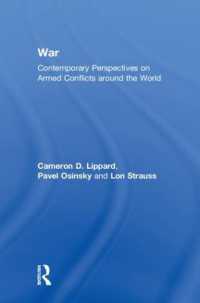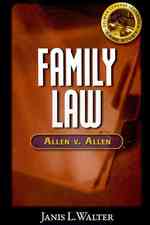- ホーム
- > 洋書
- > 英文書
- > Cinema / Film
Full Description
A new reading of Fassbinder's most popular film that highlights the roles of race and gender.
The Marriage of Maria Braun is the most popular film by the enfant terrible director Rainer Werner Fassbinder, the leading exponent of the "New German Cinema" of the early sixties to early eighties. It exemplifies his use and abuse of the genre of melodrama. Set in the immediate postwar period and centered around a strong female protagonist, Maria Braun (1978) was the first film in a trilogy that attempts to work through West Germany's fraught past and the legacy of Nazi Germany through the eyes of characters marginalized by their gender, race, sexuality, or (dis)ability. Maria attempts to navigate the poverty and sexism of the immediate postwar years by making her relationships with men, including the Black American G.I., Bill, as beneficial as possible. In the end, she discovers she has been a pawn in a power game between her husband, Hermann, for whom she has been pining while he has been in prison, and her lover, the industrialist Oswald. Yet Maria is also complicit in racism and white patriarchy, a fact that scholarship on the film has barely registered. In her new reading, Priscilla Layne draws on archival research, Critical Race Theory, Black Feminist Thought, and Critical Whiteness Studies to expand on the role of race and gender in the film.
Contents
Rising from the Ashes
Race and Gender in Postwar German Society
An Explosive Beginning
Milking Melodrama
Drama in Black and White
Love Stories Set in a War Zone
Undermining Melodrama
Fassbinder's Style
Music
A War Widow?
Coca Cola-nization
Intersectionality
The Melodrama of Race
Economic Wonderwoman
An Explosive Ending
Afterlife on the Stage
Credits
Notes








